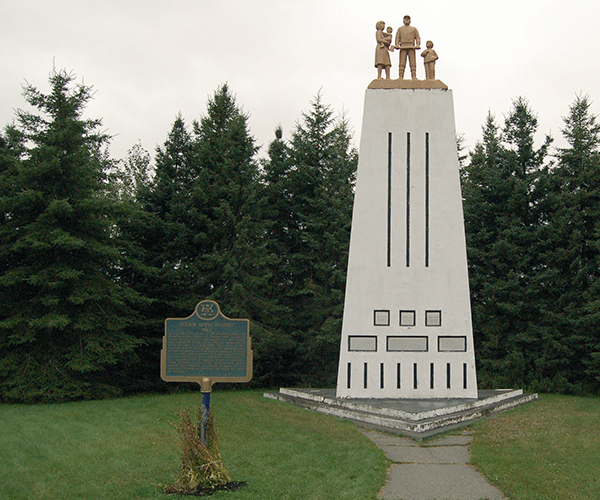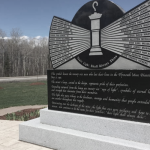
A month earlier, on January 14, the 1,500 members of Local 2995 of the Lumber and Sawmill Workers Union (part of the United Brotherhood of Carpenters and Joiners of America), walked out on strike. Their employer, Spruce Falls Power and Paper Company, was trying to break the pattern bargaining that had taken place for years in the region.
The mill relied on the local supply of logs to make wood pulp. Along with the woodcutters who were facing a wage freeze, local farmers provided 25% of the logs the pulp mill needed to function. The land in the region was poor and despite the extra income earned from logging, it was difficult to make a living farming. When asked by the union to stop providing logs to the mill to help put pressure on their employer to settle, the farmers refused and relations quickly soured. The striking workers responded by sabotaging the farmers’ lumber, making it unsaleable.
Conflict within the community escalated. On January 23, the mayor of Kapuskasing, Norman Grant, was quoted in the Globe and Mail saying, “These settlers are getting so desperate they are going to go into the bush with guns and shoot anyone who tries to interfere with their cutting.”
At midnight on February 10, a group of 400 unarmed workers gathered to stop a shipment of the farmers’ wood from being loaded onto railcars. Twenty farmers were waiting for them at the loading station, determined to protect their lumber. Standing between them were fewer than 20 Ontario Provincial Police officers and a line of chain.
The workers easily got past the police and their chain, but as they approached the lumber, a number of the farmers stepped out from hiding and began shooting into the crowd of workers. They killed Fernand Drouin, and brothers Irenée and Joseph Fortier. Eight others were wounded: Harry Bernard, Ovila Bernard, Joseph Boily, Alex Hachey, Albert Martel, Joseph Mercier, Léo Ouimette and Daniel Tremblay.
Later, the leader of the Ontario NDP, Donald C. MacDonald, publicly declared that affidavits revealed that police knew farmers had brought firearms with them that night, but did nothing to prevent their use.
After the attack, the province sent 200 police officers to the area and appointed Professor Bora Laskin of the University of Toronto as mediator between the LSWU and Spruce Falls. Workers voted to end the strike and return to work under the terms of their old contract on February 17 agreeing to arbitration to resolve the issues behind the 33-day long strike.
Over half of the workers were temporarily held in a former POW Camp, south of Iroquois Falls, on charges of rioting until they were released on bail posted by the union. The farmers had their firearms seized (14 in total) and faced charges of non-capital murder. Eventually, 138 union members were found guilty of illegal assembly, with the union paying $27,600 in fines, while three farmers were found guilty of firearms violations and fined $150 each.
Today, Reesor Siding is a ghost town. A memorial to the incident, raised by the workers’ union, and a provincial historic plaque are all that remain to remind us of the conflict, the scars of which lingered for years afterward. The Globe and Mail reported threats to destroy the monument when it was built. In 1969, musician Stompin Tom Connors wrote his song “Reesor Crossing Tragedy” and reported receiving death threats and orders for him not to play the song at upcoming venues.

